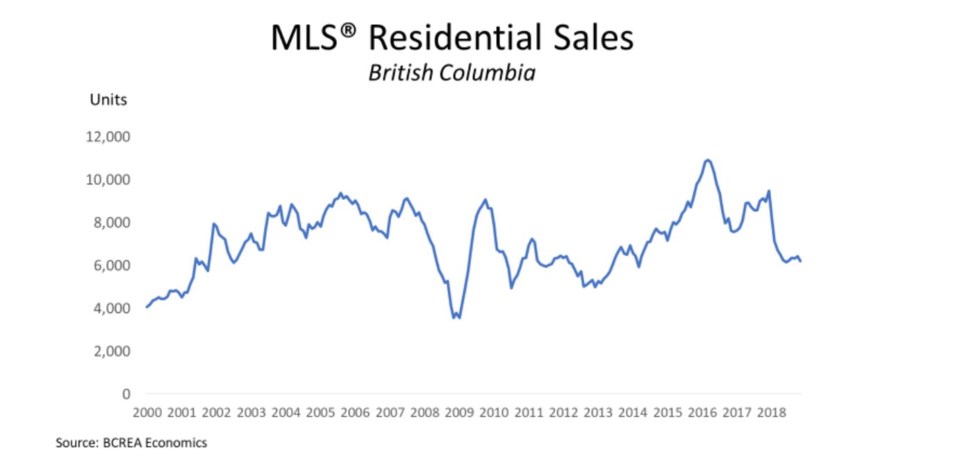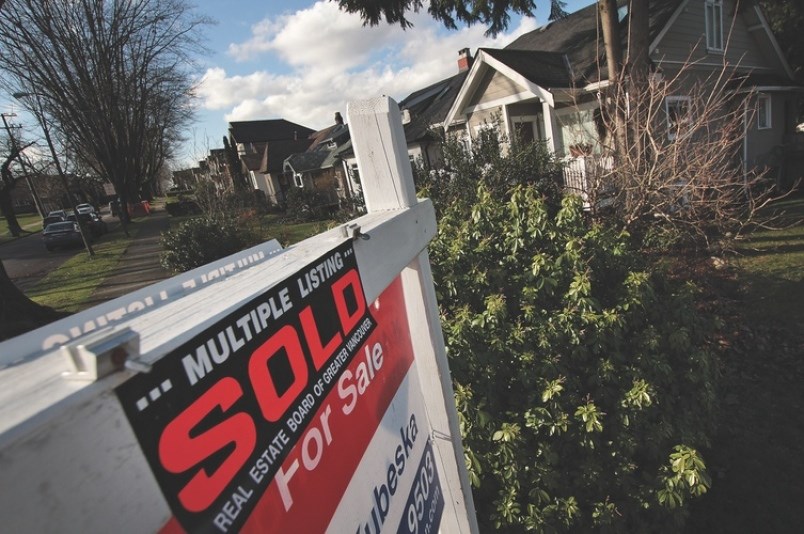Home sales across B.C. fell by just over 33 per cent in November compared with one year ago, to 5,179 resale transactions, according to figures released December 14 by the B.C. Real Estate Association.
That’s a drop of more than 19 per cent in the month since October, as the market also cooled for the winter season.
The available inventory of homes for sale in the province correspondingly jumped nearly 31 per cent to 33,500 units in November, compared with a year ago. However, the BCREA noted that this total number of active listings is not particularly high, observing that the annual percentage increase “compares to 2017, when active listings for the month of November were at their lowest level in more than 15 years.”
The association continued to link the market slowdown with the federal mortgage stress test launched in January 2018, which reduces many homebuyers’ purchasing power by up to 20 per cent. Cameron Muir, BCREA’s chief economist, said of the latest sales figures, “B.C. households continue to struggle with the sharp decline in purchasing power caused by the B20 mortgage stress test. Most B.C. regions are now exhibiting relative balance between supply and demand.”

The average MLS home sale price across the province also declined, by 1.9 per cent year over year, to $718,903. Of the individual 12 real estate boards, only Powell River and South Okanagan reported an annual decline in their average sale prices in November. But because home sales volumes in Greater Vancouver – where B.C.’s priciest homes are located – , the relatively fewer sales of expensive homes meant that the provincial average sale price was pulled down.
One B.C. region bucked the provincial trend for reduced sales and slowing price growth. B.C. Northern Real Estate Board, which includes Prince George and the booming LNG town of Kitimat, cited a 12.4 per cent annual increase in resale transactions, as well as an 11.5 per cent rise in the average home sale price. Overall, the region’s November dollar volume was up more than 25 per cent year over year.
The statistics follow BCREA’s Mortgage Rate Outlook for 2019, which was . The association’s economists predicted that five-year fixed rates would not increase during 2019, because of the “stronger than expected impact” of the mortgage stress test, as well as declining government bond yields.




